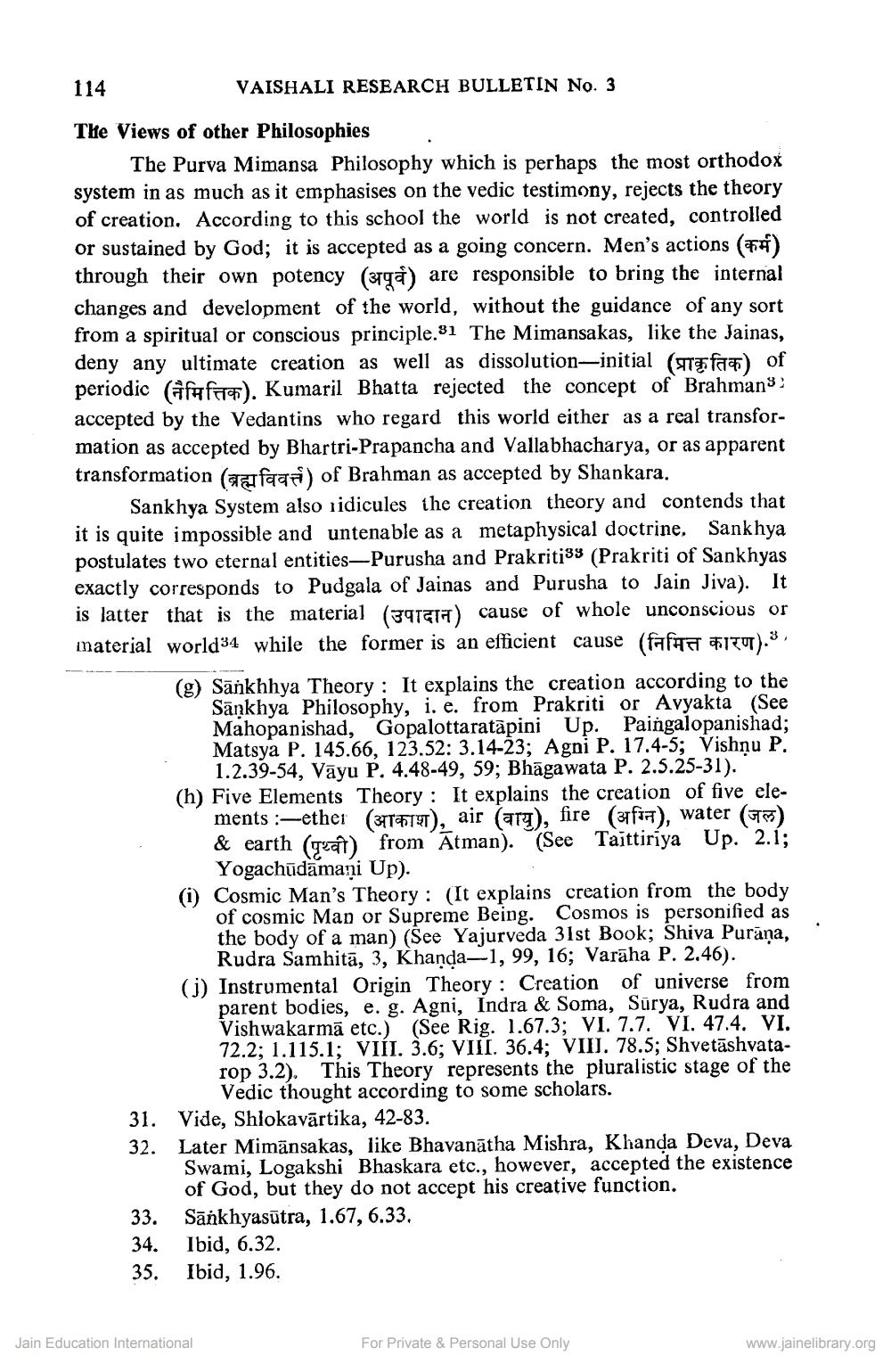________________
114
The Views of other Philosophies
The Purva Mimansa Philosophy which is perhaps the most orthodox system in as much as it emphasises on the vedic testimony, rejects the theory of creation. According to this school the world is not created, controlled or sustained by God; it is accepted as a going concern. Men's actions (*) through their own potency (зga) are responsible to bring the internal changes and development of the world, without the guidance of any sort from a spiritual or conscious principle.81 The Mimansakas, like the Jainas, deny any ultimate creation as well as dissolution-initial (f) of periodic (ff). Kumaril Bhatta rejected the concept of Brahman accepted by the Vedantins who regard this world either as a real transformation as accepted by Bhartri-Prapancha and Vallabhacharya, or as apparent transformation (fa) of Brahman as accepted by Shankara.
Sankhya System also ridicules the creation theory and contends that it is quite impossible and untenable as a metaphysical doctrine. Sankhya postulates two eternal entities-Purusha and Prakritis (Prakriti of Sankhyas exactly corresponds to Pudgala of Jainas and Purusha to Jain Jiva). It is latter that is the material (391) cause of whole unconscious or material world34 while the former is an efficient cause (faf 17).
3,
VAISHALI RESEARCH BULLETIN No. 3
33.
34.
35.
(g) Sankhhya Theory: It explains the creation according to the
Sankhya Philosophy, i. e. from Prakriti or Avyakta (See Mahopanishad, Gopalottaratapini Up. Paingalopanishad; Matsya P. 145.66, 123.52: 3.14-23; Agni P. 17.4-5; Vishnu P. 1.2.39-54, Vayu P. 4.48-49, 59; Bhagawata P. 2.5.25-31).
(h) Five Elements Theory: It explains the creation of five elements :-ether (आकाश), air (वायु), fire (अग्नि), water (जल) & earth (a) from Atman). (See Taittiriya Up. 2.1; Yogachūdāmani Up).
(i) Cosmic Man's Theory: (It explains creation from the body of cosmic Man or Supreme Being. Cosmos is personified as the body of a man) (See Yajurveda 31st Book; Shiva Purana, Rudra Samhita, 3, Khanda-1, 99, 16; Varaha P. 2.46).
(j) Instrumental Origin Theory: Creation of universe from parent bodies, e. g. Agni, Indra & Soma, Surya, Rudra and Vishwakarma etc.) (See Rig. 1.67.3; VI. 7.7. VI. 47.4. VI. 72.2; 1.115.1; VIII. 3.6; VIII. 36.4; VIII. 78.5; Shvetashvatarop 3.2). This Theory represents the pluralistic stage of the Vedic thought according to some scholars.
31. Vide, Shlokavārtika, 42-83.
32.
Later Mimänsakas, like Bhavanatha Mishra, Khanda Deva, Deva Swami, Logakshi Bhaskara etc., however, accepted the existence of God, but they do not accept his creative function.
Sankhyasūtra, 1.67, 6.33.
Ibid, 6.32.
Ibid, 1.96.
Jain Education International
For Private & Personal Use Only
www.jainelibrary.org




